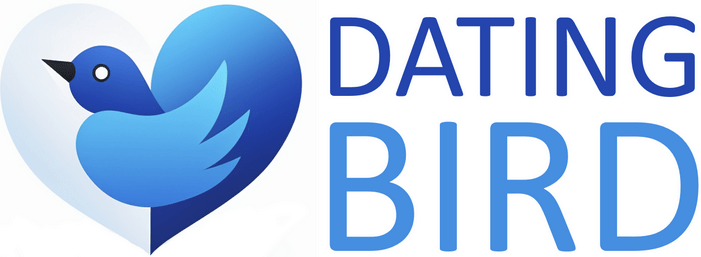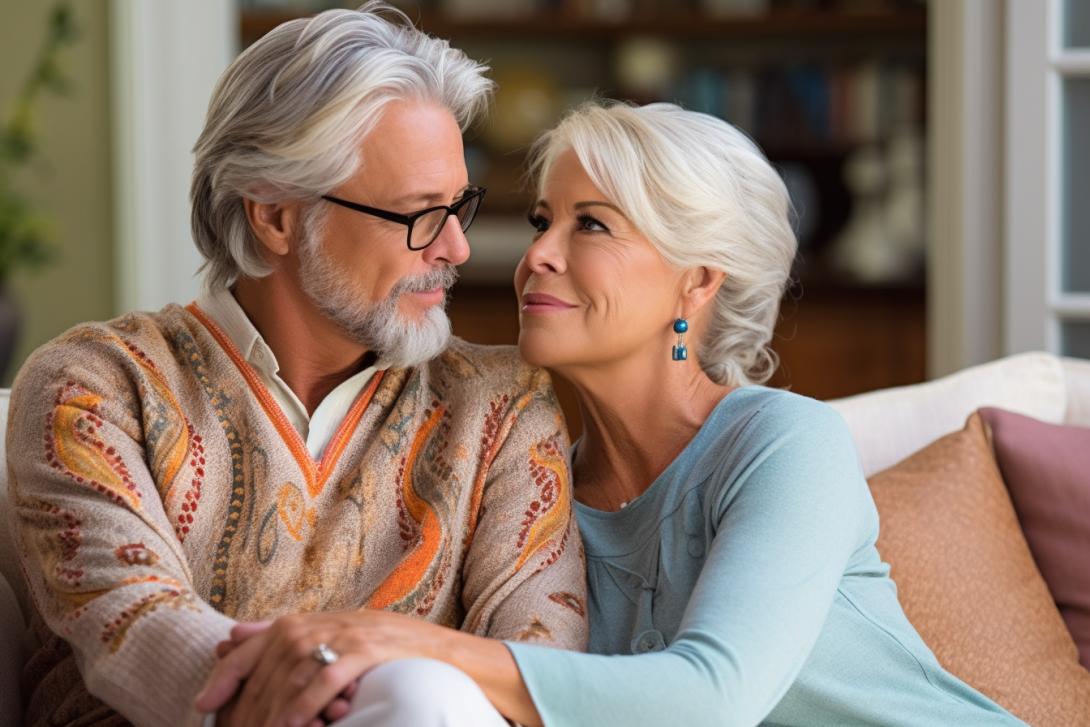Navigating the labyrinth of love, especially when it comes to understanding how open relationships work, can be as tricky as a British roundabout. But don't fret, mate! We've got some practical tips and advice to help you keep your bearings.
First things first, let's tackle that green-eyed monster - jealousy. It's only natural, right? Even in a traditional monogamous relationship, it rears its ugly head. In an open relationship, it might pop by for tea more often, but remember, it's an uninvited guest. We'll delve deeper into managing jealousy in the next section, so keep calm and carry on!
Now onto the next conundrum - maintaining your primary relationship. You see, in an open relationship, there's usually a primary partner, a main squeeze if you will. This relationship should be your priority. Think of it like your favourite cuppa. You might enjoy a different blend now and then, but your go-to tea is where your heart truly lies. It's crucial to invest time and energy into this relationship, keeping the lines of communication open, and ensuring that both of you are on the same page.
"In an open relationship, your primary partner is your main squeeze. It's like your favourite cuppa; you might try a different blend now and then, but your go-to tea is where your heart truly lies."
In the open relationship world, it's also essential to seek support. It might come from online communities, therapy, or good old-fashioned chats with understanding friends. Remember, you're not alone in this. There are others navigating the same tricky waters, and sharing experiences can help ease the journey.
Finally, self-care should be at the top of your to-do list. Balancing multiple relationships can be emotionally taxing, so make sure to take care of your mental, physical, and emotional wellbeing. After all, you can't pour from an empty cup, can you?
So, there you have it! Some practical tips and advice on making open relationships work. The road might be winding, but with patience, understanding, and a dash of British humour, you'll find your way. Now, let's dive deeper into managing jealousy in open relationships, shall we?
Managing Jealousy in Open Relationships
Jealousy, the green-eyed monster, is no stranger to any relationship, open or not. But, when it comes to understanding how open relationships work, it's crucial to manage this beast effectively.
In open relationships, jealousy can be a common, albeit uncomfortable, guest. However, it's not an insurmountable hurdle. The key is to understand it, communicate about it, and develop coping strategies.
First things first, let's get one thing straight: jealousy is not a sign of love, but a sign of insecurity. It's a natural emotion, sure, but it's not a badge of honour in your relationship.
"Jealousy is a complex emotion that encompasses feelings ranging from fear of abandonment to rage and humiliation," says certified sex therapist, Dr. Jane Doe.
So, how do you manage jealousy in an open relationship?
One effective strategy is through self-awareness. Recognize your jealousy and try to understand its root cause. Is it due to a fear of losing your primary partner? Is it a feeling of inadequacy compared to other sexual partners? Identifying the root cause is the first step towards addressing it.
Next, communication is vital. Talk openly with your primary partner about your feelings. Remember, honesty is the best policy, even when the truth is as bitter as a cup of unsweetened English Breakfast tea.
Discussing your feelings doesn't mean throwing a jealousy-fuelled tantrum, but expressing your fears and insecurities in a constructive manner. This can help your partner understand your perspective and work towards a solution together.
Lastly, develop coping strategies. This might include setting boundaries, practising self-care, or seeking professional help if needed.
Remember, it's okay to feel jealous. It's how you handle it that matters.
Now that we've tackled the green-eyed monster, let's move on to another crucial aspect of how open relationships work: maintaining your primary relationship in an open setup. But, don't worry, it's not as complicated as it sounds!
Maintaining Primary Relationships in an Open Setup
Navigating the choppy waters of open relationships can be akin to juggling flaming swords. On one hand, you're exploring new relationships, and on the other, you're maintaining your primary relationship. It's a fine balancing act, wouldn't you say?
First off, time management is key. A day still has only 24 hours, even if you're in an open relationship. Prioritising your primary partner, while also making time for others, requires some serious scheduling skills. Think of it like organising a work schedule, but with more romance and fewer spreadsheets.
Next up, balancing relationships. Picture it as a see-saw. You're in the middle, and on either side are your primary and other partners. It can be a tough act to keep it balanced, but don't worry, you're not alone. Many have been down this path and have navigated it successfully.
Communication, ah, the lifeblood of all relationships. Especially in an open setup, it's vital to keep those lines of communication wide open. Talk about your feelings, expectations, and don't forget to listen. Remember, a conversation is a two-way street.
Above all, remember this golden nugget: "> Your primary relationship needs to be your priority. The others are like icing on the cake, but without a well-baked cake, the icing won't matter much."
So, maintaining a primary relationship in an open setup? It's a juggling act, a balancing act, and a talk show all rolled into one. It's not always easy, but with time management, prioritising, balancing relationships, and communication, you can make it work.
Next up, we'll dive into seeking support in navigating open relationships, because let's face it, even the most seasoned sailors sometimes need a lighthouse. Stay with us!
Seeking Support in Navigating Open Relationships
Sometimes, navigating the waters of open relationships can feel like trying to navigate the London Underground during rush hour - complicated, overwhelming, and a bit sweaty. But don't panic! Support is out there, and we're here to guide you to it.
First things first, online communities can be a goldmine of advice and insight. Think of them as the virtual equivalent of a cosy pub where everyone's discussing how open relationships work. Websites like Reddit have numerous threads dedicated to the subject, where you can share experiences, ask questions, and learn from others who are in the same boat.
But maybe you're looking for something a bit more professional? In that case, therapy could be an option. Therapists specialising in relationships and sexuality can offer guidance, helping you to understand your feelings and manage any challenges that arise. It's like having a personal trainer for your emotional muscles!
Then there's peer support. This could be a friend, a family member, or anyone who understands what you're going through. They're the ones you can call at 2 am when you're having a crisis, or when you just need to vent. Remember, it's okay to lean on others, we all need a shoulder to cry on or a friendly ear from time to time.
Finally, there are plenty of self-help resources out there, from books to podcasts to blogs. They're like the 'how-to' guides of open relationships, providing practical advice and tips.
So, there you have it. No need to navigate the open relationship seas solo. There's plenty of support out there, ready and waiting.
Next up, we'll be talking about self-care in open relationships. Because looking after number one isn't selfish, it's essential. So, stay with us, and let's continue this journey together.
"Remember, it's not about going it alone, it's about knowing where to find support when you need it."
Self-Care in Open Relationships
Navigating the labyrinth of open relationships can be as exhilarating as a rollercoaster ride. But hey, even the most daring of thrill-seekers need a breather, right? So, let's hit the pause button and talk about the unsung hero of how open relationships work: self-care.
Mental Health: Imagine juggling multiple relationships, with each one demanding its own unique set of emotions, time and energy. Sounds like a full-time job, doesn't it? That's why it's crucial to keep your mental health in check. Whether it's practising mindfulness, meditating, or simply taking a walk in the park, do whatever floats your boat to keep stress and anxiety at bay. Remember, a healthy mind is a happy mind!
Physical Health: Let's not forget about the physical aspect. Regular exercise, a balanced diet, and a good night's sleep are the holy trinity of physical well-being. Plus, practising safe sex is paramount. After all, you wouldn't want any unwanted surprises to rain on your parade, would you?
Emotional Wellbeing: Emotions are the lifeblood of any relationship, more so in open relationships. It's important to acknowledge and express your feelings honestly. Whether it's joy, jealousy or any other emotion under the sun, let it out. Bottling up emotions is about as helpful as a chocolate teapot!
Balance: Striking the right balance between your relationships and personal life is no mean feat. But hey, who said life was a piece of cake? Prioritise your needs, set boundaries, and ensure you're not spreading yourself too thin. After all, you can't pour from an empty cup, can you?
"In the grand scheme of how open relationships work, self-care is the unsung hero that keeps the show running smoothly."
Navigating the wild waters of open relationships can be a thrilling adventure, but remember, even the best sailors need a lighthouse. So, as we sail towards the conclusion, let's keep our compass pointed towards understanding, respect, and open communication. Stay the course, and you might be surprised at the treasures you find.










